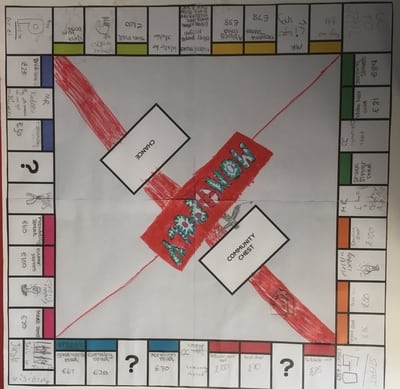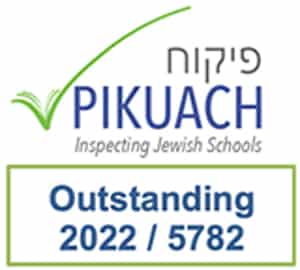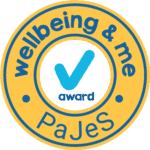In 2014 the Department for Education introduced guidance for how schools should teach pupils about British values. At Sacks Morasha Jewish Primary School, we proudly uphold and teach pupils about British values, which are defined as:
- democracy
- rule of law
- individual liberty
- mutual respect
- tolerance of those of different faiths and beliefs.
We teach our children to value, respect and understand the different cultures and religions that make up Britain today. These British values are inherent throughout our school, where children are enabled to explore and understand both their Jewish heritage as well as what it means to be British. The school actively promotes British values through tefillah and assemblies, with careful planning including relevant cross-curricular links. We have also implemented whole-school initiatives such as a successful democratically elected School Council. At Sacks Morasha, British values are reinforced regularly and in the following ways.
Democracy
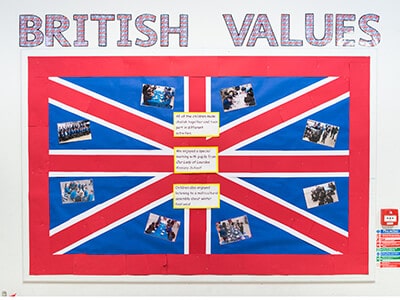
Democracy is an important value at our school. Pupils have the opportunity to have their voices heard through our Student Council. They are also asked for their views through pupil questionnaires. Core values are also taught by our SMART school initiative, which is based on important Jewish values: Simcha, Middot, Achdut, Ruach and Torah. Every month we have a new middah (focus) – e.g. respect for others – that is discussed both with the Chol and Kodesh teachers, showing a joint unified approach. On Rosh Chodesh, every class discusses the new middah and the children agree to work together on this new value. The SMART initiative is a consensus between pupils and staff on how to behave.
The rule of law
The importance of laws and rules – whether they are those that govern the class, the school or the country – are consistently reinforced throughout regular school days. Our behaviour system in both the school and in the playground is clear to all children. Pupils are taught the values and reasons behind laws and rules: that they govern and protect us both in our school and in our country. Pupils also learn about the responsibilities they have as citizens, both of our school and our country, as well as the consequences when rules and laws are broken. Visits from authorities such as the police and the fire service are a regular part of our curriculum and help reinforce this message. To encourage and promote good behaviour, attitude and work, we have devised a reward system that is consistently followed throughout the school. We are committed to praising children’s efforts. We endeavour to praise the children informally, individually, during group work, in front of the whole class and in front of the whole school. Rewards are given in the form of ‘Dojo’ points, house points, ‘SMART’ certificates and ‘Work of the Week’.
Individual Liberty
Pupils are actively encouraged to make choices at our school, knowing that they are in a safe and supportive environment. As a school, we provide boundaries for our children to make these choices safely, through the provision of a secure environment and a well-planned curriculum. Pupils are encouraged to know, understand and exercise their rights and personal freedoms, and are advised how to exercise these safely. For example, our e-Safety programme encourages children to be safe and savvy users of technology. Pupils are also given the freedom to make choices such as signing up for extra-curricular clubs they might enjoy. Children can also select their food at lunchtime and can choose healthy options.
Mutual Respect
Our school ethos and behaviour policy are based around core Jewish (and British) values such as respect and responsibility, and these values determine how we function as a community at Sacks Morasha.
Tolerance of those of different faiths and beliefs
This is achieved through enhancing pupils’ understanding of different ethnic groups that make up our culturally diverse society. We also teach respect and tolerance of different people and different faiths. We use opportunities such as the Olympics and the World Cup to study and learn about life and culture in other countries. We work with agencies like Three Faiths Forum, which aims to build understanding and positive relationships between people of all faiths and beliefs.
Sacks Morasha Class Rules
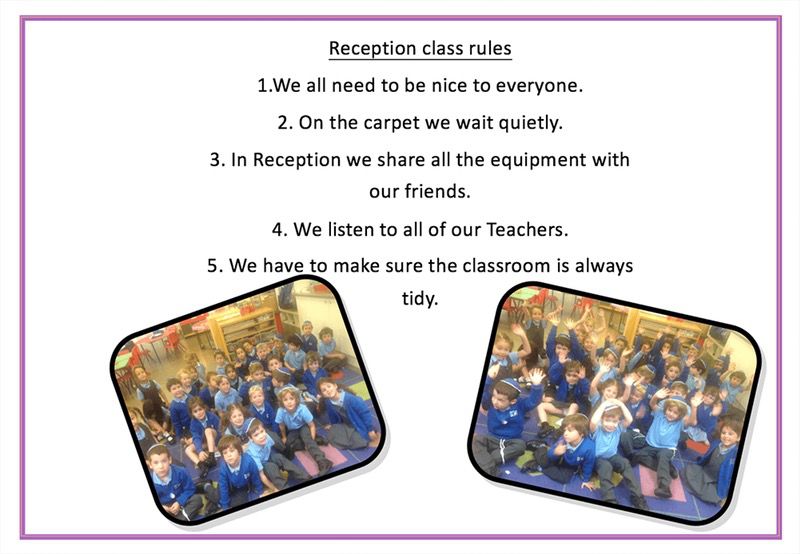
Reception Class Rules
1. We all need to be nice to everyone. 2. On the carpet we wait quietly. 3. In Reception we share all the equipment with our friends. 4. We listen to all of our teachers. 5. We have to make sure the classroom is always tidy.
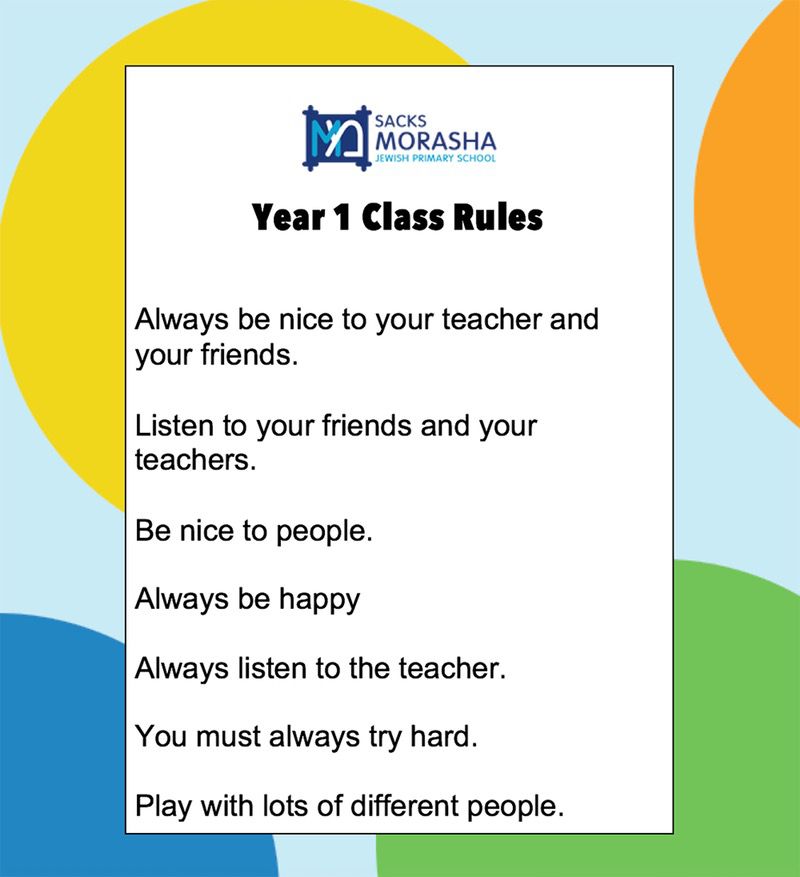
Year 1 Class Rules
1. Always be nice to your teacher and your friends. 2. Listen to your friends and your teachers. 3. Be nice to people. 4. Always be happy. 5. Always listen to the teacher. 6. You must always try hard. 7. Play with lots of different people.
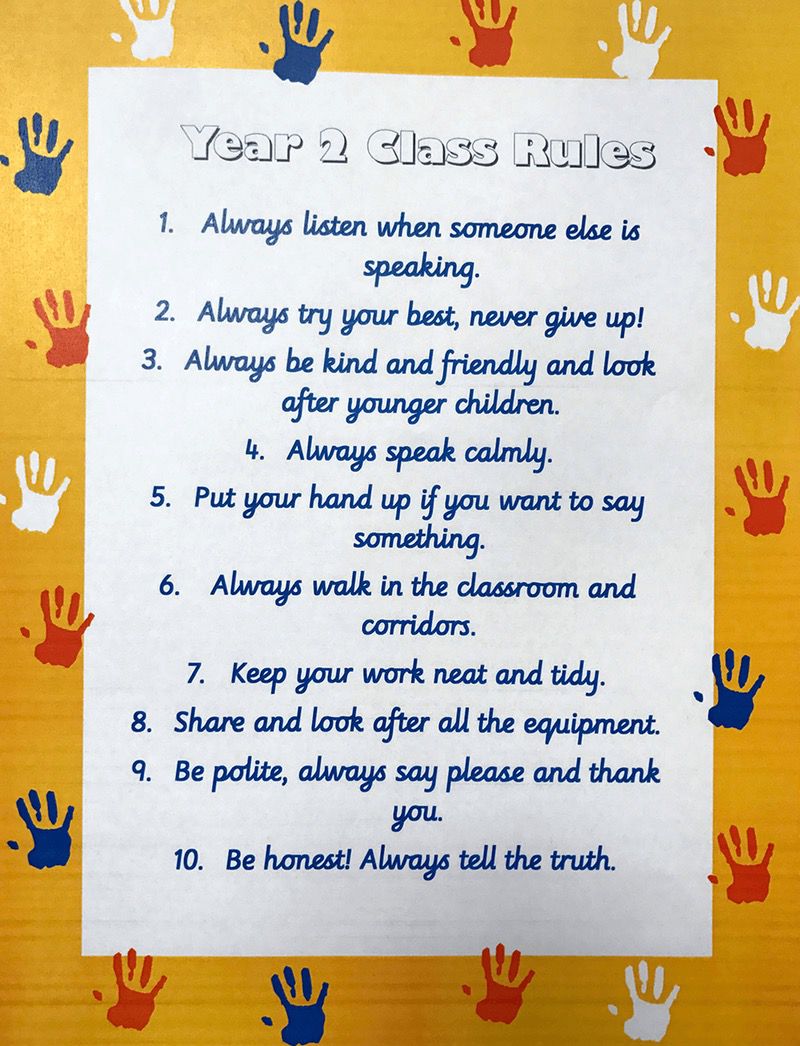
Year 2 Class Rules
1. Always listen when someone else is speaking. 2. Always try your best, never give up! 3. Always be kind and friendly and look after younger children. 4. Always speak calmly. 5. Put your hand up if you want to say something. 6. ALways walk in the classroom and corridors. 7. Keep your work neat and tidy. 8. Share and look after all the equipment. 9. Be polite, always say please and thank you. 10. Be honest! Always tell the truth.
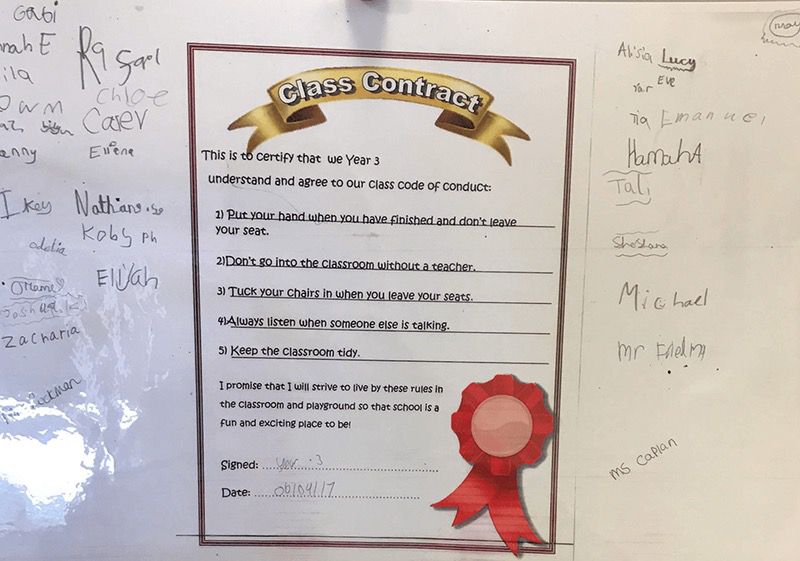
Year 3 Class Rules
1. Put your hand up when you have finished and don’t leave your seat. 2. Don’t go into the classroom without a teacher. 3. Tuck your chairs in when you leave your seats. 4. Always listen when someone else is talking. 5. Keep the classroom tidy.
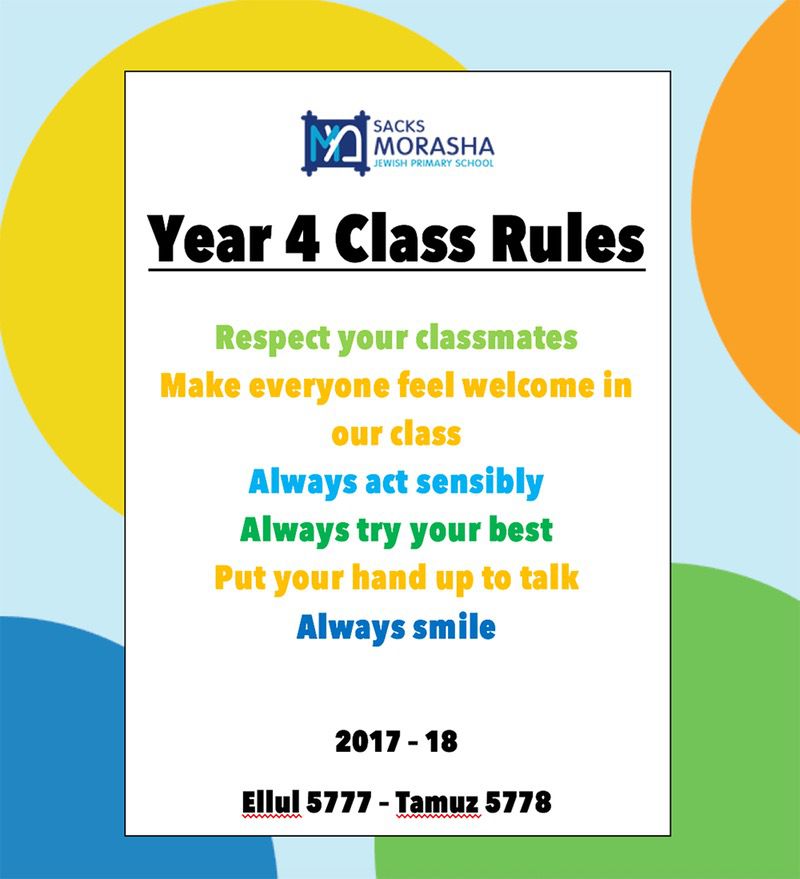
Year 4 Class Rules
1. Respect your classmates. 2. Make everyone feel welcome in our class. 3. Always act sensibly. 4. Always try your best. 5. Put your hand up to talk. 6. Always smile.
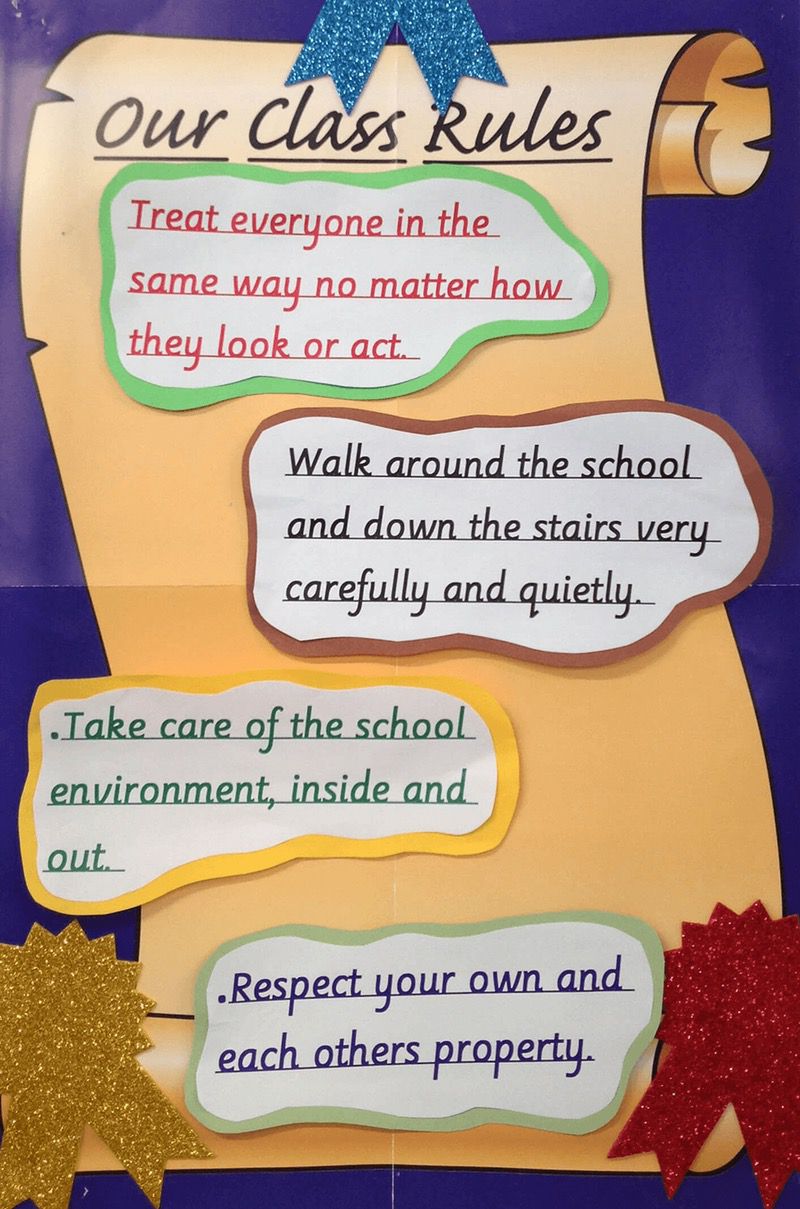
Year 5 Class Rules
1. Treat everyone in the same way no matter how they look or act. 2. Walk around the school and down the stairs very carefully and quietly. 3. Take care of the school environment, inside and out. 4. Respect your own and each other’s property.
Links between Chanukah and British Values During Chanukah, there were many opportunities to integrate Chol and Kodesh lessons and activities. Classes were taught the rules of what constitutes a Kosher Chanukiah and then they applied these rules to the construction of their own class Chanukiot. Each class was given a specific theme. In Reception, the children designed a Chanukia based on the structure of the Houses of Parliament, with Big Ben representing the shamash. Year 1 looked at the design of Tower Bridge and constructed their Chanukiot linked to the opening of the bridge. The theme for Year 6 was the design of suspension bridges, focusing on the Millennium Bridge in London and the Gateshead Bridge. All classes discussed the features, context, materials and construction of the bridges. As part of the school’s link to the local community, Year 1 visited a residents of a retirement block of flats during Chanukah. They lit the candles and sang a variety of Chanukah songs.
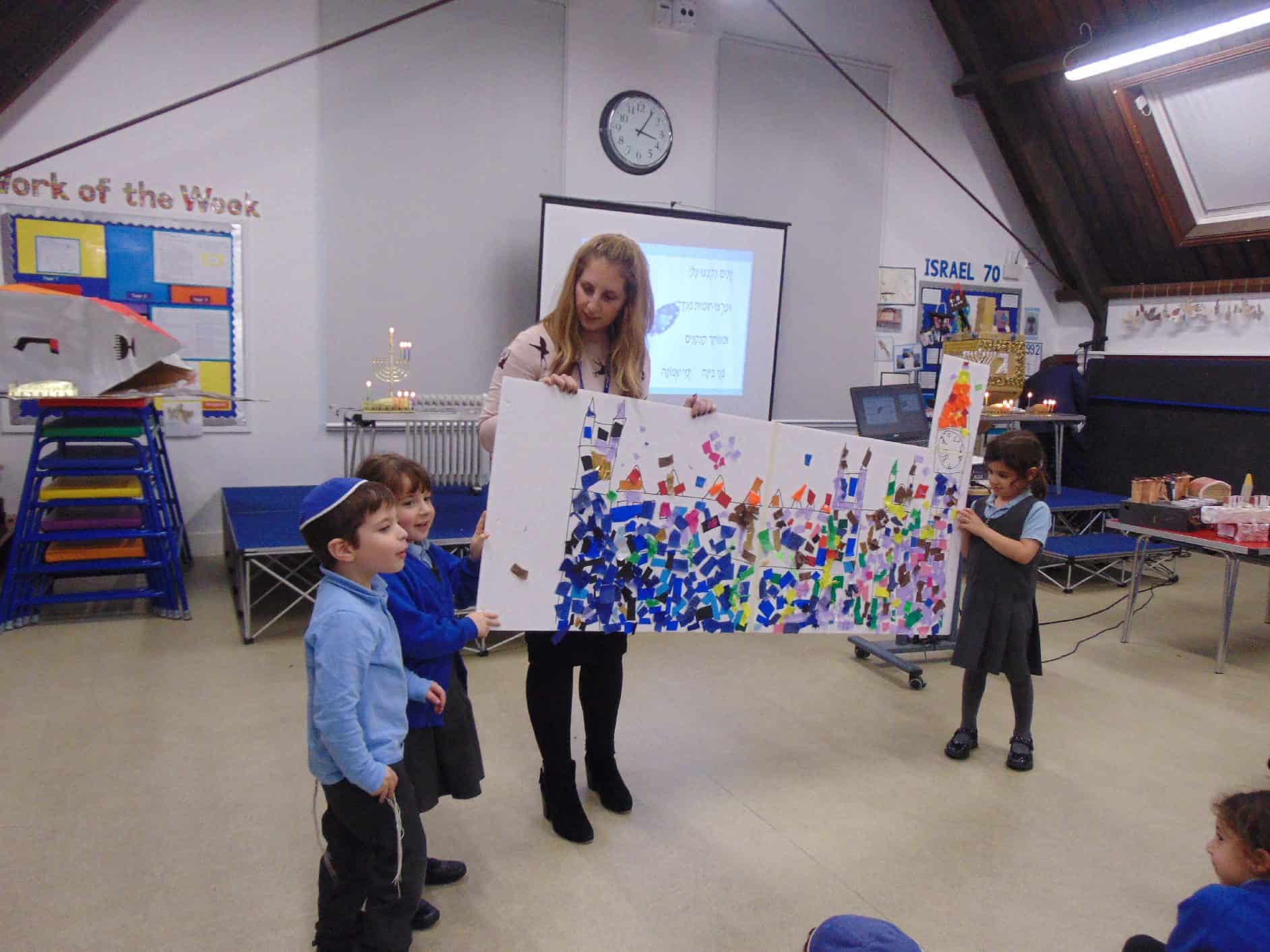
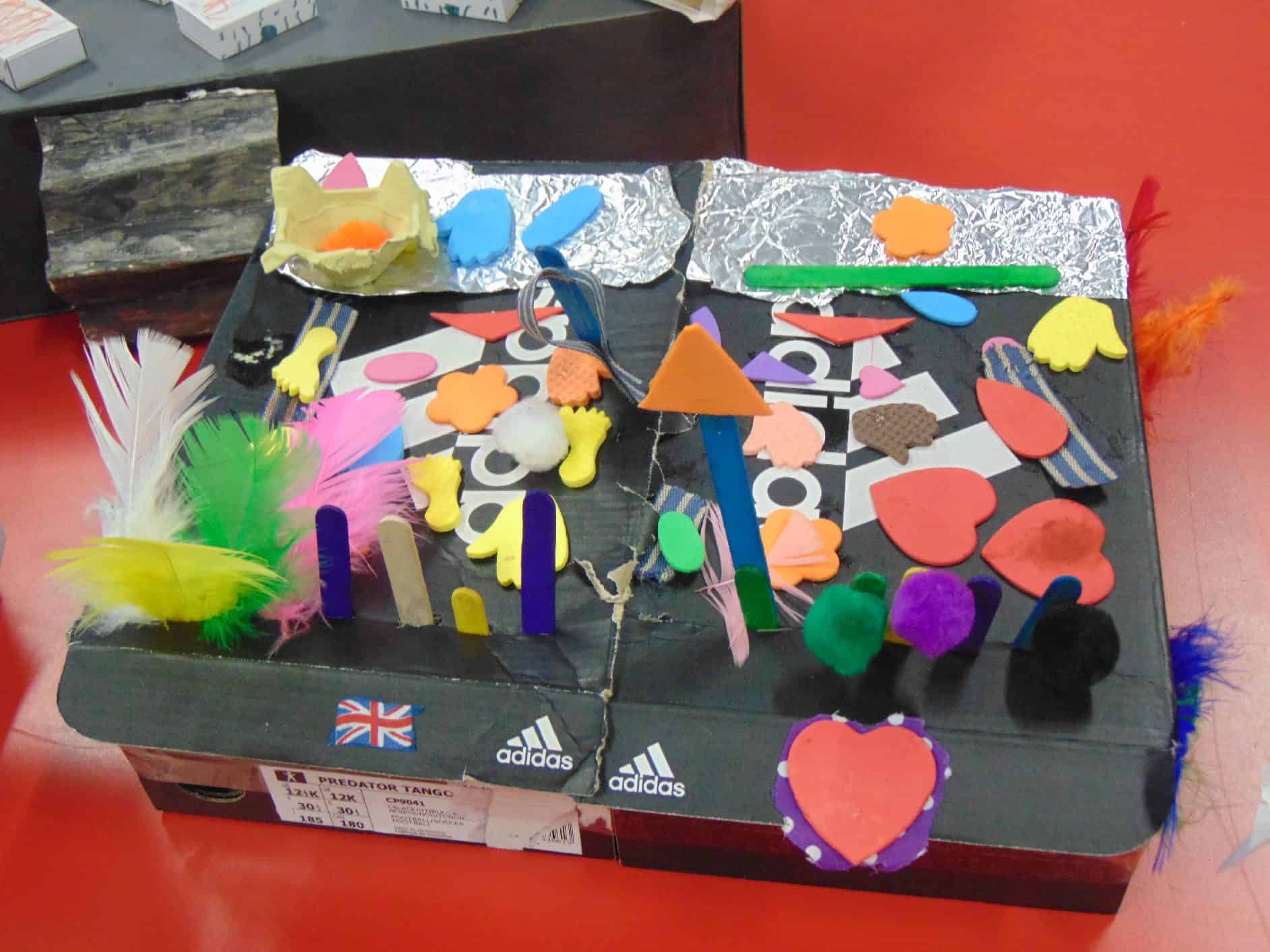
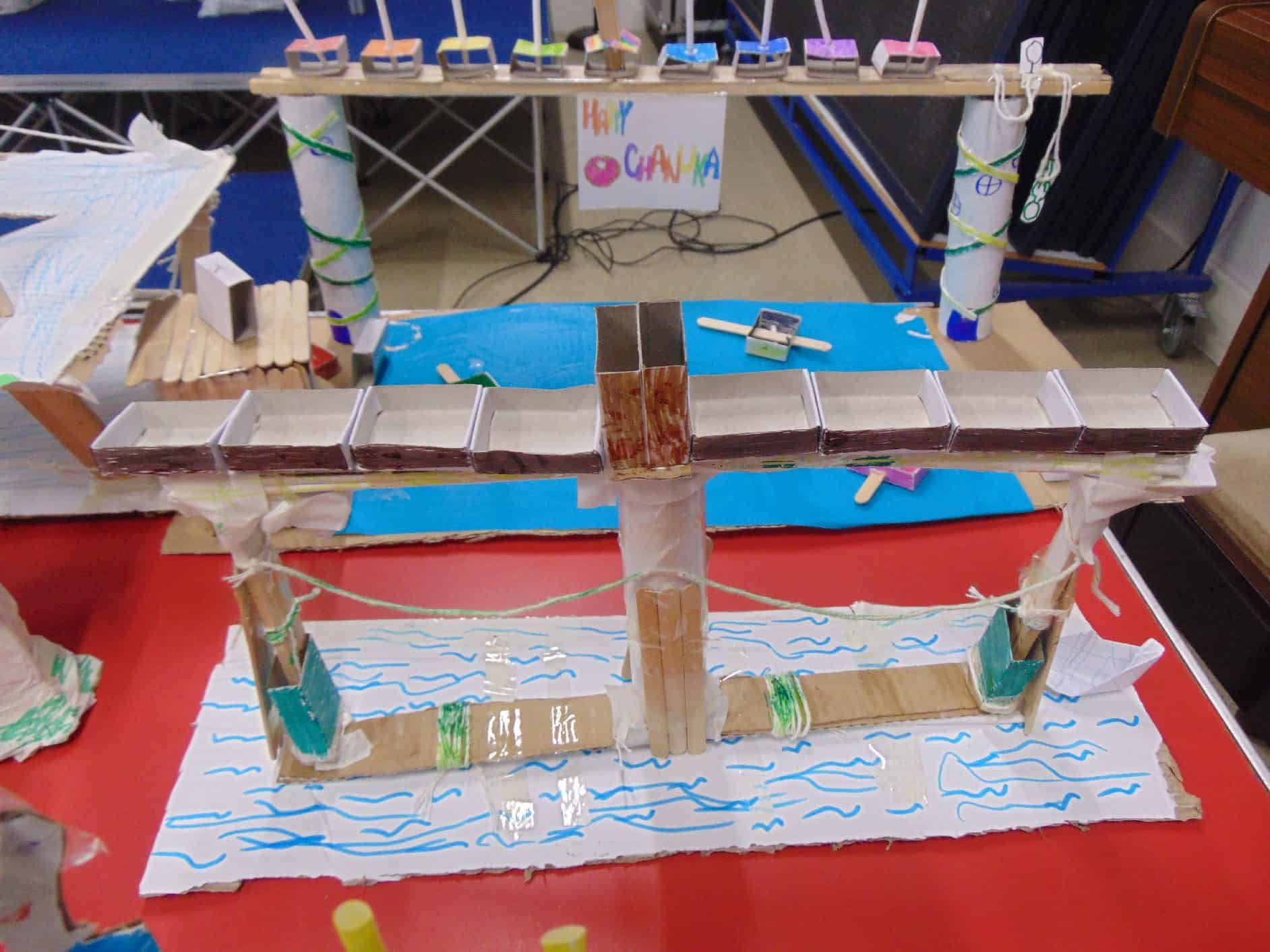
British Values Monopoly
We all went through Passport Control
All classes came into class and self-registered by having an SMJPS passport. They wrote their name, nationality, date of birth and place of birth.
DEMOCRACY
To understand what democracy is the pupils, in their houses, each made a group Monopoly board. We explained how the United Kingdom is split into 4 countries and is run as a democracy which means the people get to vote for who they want to run the country. We explained that they do this by voting in a political party who has a leader that becomes Prime Minister. Lots of different parties and members of parliament make up parliament. Children were given the option to vote for which of the 4 countries they would like to base the Monopoly board on. Children used ballot cards in their groups to vote and also got to vote for who was team leader in their group. They created a Monopoly board based on this and researched that country.
INDIVIDUAL LIBERTY
Teachers explained how individual liberty allows individuals the right to;
- say and do what they think or be who they want to be within the rule of law.
Out of clay, each pupil created themselves as a piece/character that went on the board. They understood that they have the right to be whoever they want and got to make themselves with their own individual identity.
MUTUAL RESPECT
On designated Mutual Respect spaces on the board, pupils created positive ways of showing mutual respect towards each other and moving three spaces forward or back depending on their examples. Below are some examples of what they came up with:
- You listened to your friends explain what Christmas is and what they do at Christmas go forward 3 spaces
- You listen to your friends explain the how they fast during Ramadan
- You listen to your friends explain that they have Indian sweets when celebrating Diwali and that they set off fireworks as it is a festival of lights
- You explain to your Christian friend what Chanukah is about
RULE OF LAW
To help pupils understand Rule of Law and rules in Britain, they created Chance and Community Chest cards about keeping and breaking the laws.
Examples of this were:
- You have a speeding fine – pay £15
- you parked on a double yellow line
- you stole go to jail
- you damaged someone’s property
- you hit someone
- You avoided paying taxes
- you disturbed the peace on a bus
As well as positive ones!
For example:
- you got over 98% attendance at school, you get a bonus
- You were a good citizen and you paid your taxes you receive a tax rebate
- you stopped at a Zebra Crossing
- you stopped at a red light
- you drove at the correct speed
- You wore your seat belt
- you didn’t use your phone while driving.
